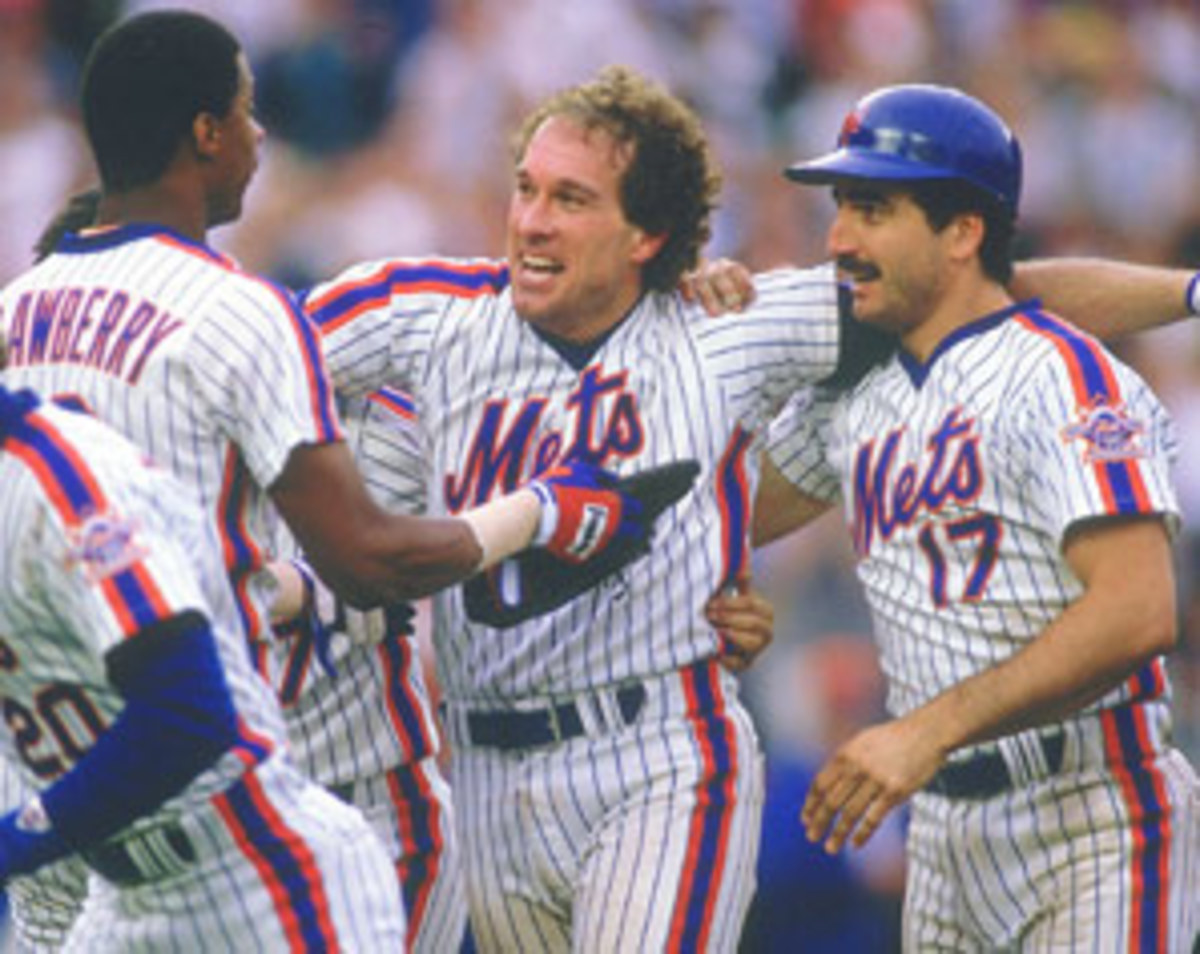
News of Gary Carter's inoperable brain cancer hits especially hard
Imagine a lineup of the 36 men who played for the 1986 New York Mets.
Picture them standing there, all young and eager, decked out in their blue, white and orange uniforms. They are in their 20s and early 30s, the kings of New York, the kings of baseball.
Now, if you will, arrange them in reverse order of predicted future health.
These Mets are, in many regards, a troubled group. At the front of the line one must place Dwight Gooden and Darryl Strawberry, the two young stars who will battle years and years of drug addiction. Not far behind is Lenny Dykstra, the do-anything-for-an-edge centerfielder who, 25 years after the World Series title, will find himself in jail. Kevin Mitchell spent his boyhood as a San Diego gang banger. Keith Hernandez and Wally Backman smoke cigarettes at a rate that would make the Marlboro Man take pause. Bobby Ojeda and Doug Sisk like their beers. So do Jesse Orosco and Danny Heep. Sid Fernanez is severely overweight. On and on and on and on the list goes ...
Then, at the very end, standing all by his lonesome, is Gary Edmund Carter.
The Mets' All-Star catcher doesn't smoke. He rarely drinks. He is completely loyal to his wife, Sandy, and a loving and involved father to his three children. He works out regularly, eats nutritionally and sleeps nine hours per night. Once, when Good Morning America asked Carter to participate in a bubble gum blowing contest, he agreed with a single condition: The gum had to be sugar free.
I bring this up not to praise one of baseball's alltime greats, but to make a point that, truth be told, need not be made. Namely, life isn't fair.
In case you haven't heard the news, Carter is going through a horribly difficult time. Last May, after complaining of headaches and forgetfulness, he was diagnosed with a grade IV primary brain tumor -- which is both extremely aggressive and inoperable. Then, just three days ago, Carter's daughter, Kimmy Bloemers, wrote on the family's online journal that an MRI had revealed more tumors. "I write these words with tears," she said, "because I am so sad for my dad."
There are things that make sense, and things that don't.
Gary Carter, dying at age 57, does not.
Carter is a man who deserves to be a grandfather and, one day, a great-grandfather. Carter is warm and generous, outgoing and caring, emotional and euphoric. In fact, as I write this piece, I am overcome by the need to apologize to the man.
In 2004 I released my first book, a biography of the '86 Mets titled, The Bad Guys Won! It was a celebratory look at a team I loved as a boy, and while I praised the uproarious antics of men like Gooden, Strawberry and Dykstra, I juvenilely needled (OK, mocked) Carter. Why, the first sentence of Chapter 6 reads, "Gary Carter is a geek" -- a reference to his Boy Scout ways and Theodore Cleaver goodness.
Back in the day, when many Major League clubhouses were overrun by drugs and alcohol, Carter was pegged by teammates as something of a nerd and a narc. His nickname, "Kid," wasn't born of flattery, but of ridicule. In 1974, when Carter was starring for Memphis, the Triple A outpost of the Expos, Montreal's starting catcher was a gruff veteran named Barry Foote. Few Major Leaguers appreciated Carter's gung-ho attitude, and they infuriated Foote by reminding him that, "The Kid's sure got heart!" and "Hey, look at the Kid's hustle!"
Upon arriving in Montreal (and, later, New York), Carter was routinely the butt of jokes, tagged "Camera Carter" and "Lights" for his apparent love of the limelight and scorned for his unwillingness to sleep with groupies on the road. "He rubbed a lot of people the wrong way," Warren Cromartie, an Expos outfielder, once told me. "Gary was just ... different."
Yet, in hindsight, different wasn't merely different. It was courageous. With both the Expos and Mets, Carter easily could have drifted toward the dark side, a la Gooden and Strawberry. He certainly had his choice of women and, had he so desired, his choice of drugs. In the confines of a professional locker room, peer pressure looms as largely as it does in a high school hallway. Cool divides itself from uncool, and makes certain to keep its distance. The takes on Carter� that he was trying to highlight himself, that he was an over-promoter with a giant ego -- weren't merely hurtful. They were incorrect.
Carter stood out because he cared and he hustled, and because family and the game of baseball were more important to him than finding the nearest strip club. Teammates like Cromartie and Strawberry, both of whom, in immature days, went out of their ways to ostracize Carter, did so out of insecurity. They saw an uncompromised figure and didn't much care for the vision of it.
Gary Carter, however, is much more than uncompromised.
He is righteous.





